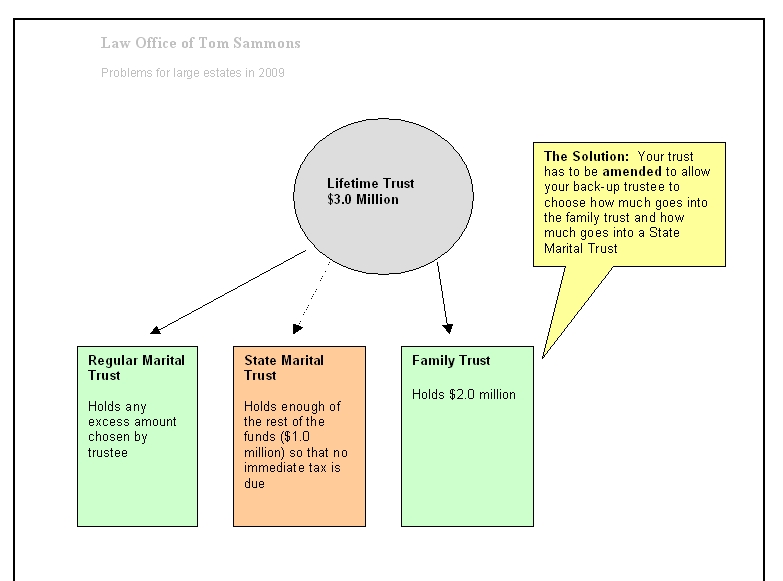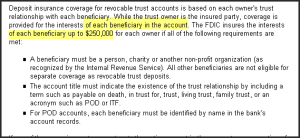
(4/9/09 Update: There is a bill pending in the Legislature that would eliminate this problem.)
For 2009, the amount that is free of estate tax under federal law is $3.5 million.
For 2009, the amount that is free of estate tax under Illinois law is $2.0 million. Illinois has “decoupled” from the federal estate tax system for 2009 (this only applies to 2009; after that we don’t have to worry about this problem).
This creates a potential inheritance tax time bomb for married couples with large estates. (This problem does not affect single, divorced or widowed people. They would, however, be wise to considering gifting to reduce their estate under $2.0 million to avoid the Illinois inheritance tax).
Who should worry about this? Married couples, who have A/B living trust and who have large estates.
How large of an estate? You should check into this if your estate is over $2 million. If your assets are under $2.0 million you don’t have to worry about it. For the most part it will affect couples with estates of about $3.0 million or so
What is the problem? The problem will occur on the first to die of a married couple, where the living trust of the deceased person contains more than $2.0 million.
Estate taxes may have to be paid on the first death. This is bad. No one wants to pay estate taxes, especially on the first death. The problem is the “funding formula” used in so called A-B living trusts that sets up the family and marital trusts. It says to put up to the federal exemption amount of $3.5 million in the family trust when the first spouse dies. Illinois will tax any amount over $2.0 million that goes into the family trust.
Unless the funding formula is amended to minimize inheritance taxes, it will trigger estate tax on the death of the first spouse.
How much would the tax be? If the trust of the deceased person has $3.5 million, then $2.0 million going to the family trust is not taxed by Illinois, but $1.5 million is taxed by Illinois. If the full $3.5 million goes into the family trust, the surviving spouse pays $229,200.00 in taxes to the state of Illinois. That’s no drop in the bucket.
What can I do to avoid paying this? The living trust has to be amended to add a third trust, so the client will have an A-B-C trust. The C trust is a “state marital trust” that prevents Illinois estate tax from be due on the first death in a married couple. It lets the backup trustee decide how much to put in the family trust and how much to put in the state marital trust and thereby avoids any tax on the first death.
